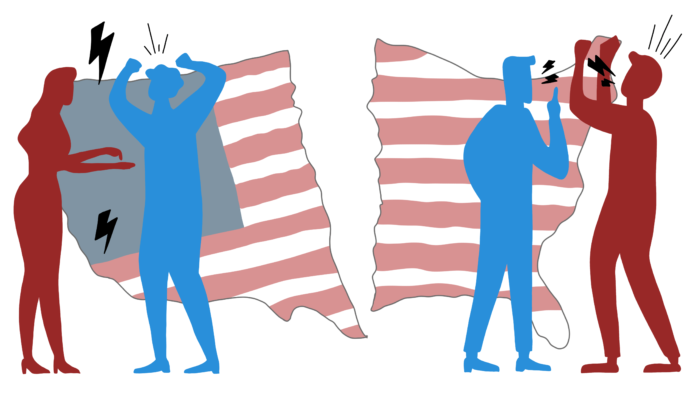When people develop a sense of apathy about the political and social conditions around them, it makes for a dangerous, static environment.
Although the high tensions that are going on in the nation today can be discouraging and overwhelming, it is important to note that these levels of polarization are better than everyone giving up and moving into a state of apathy.
Yes, it is exhausting and unsettling to live in a nation where each side of the political spectrum is constantly at the other’s throat, but polarization is a sign that people care, and it does lead to open doors that allow for change to take place. It shows that people have values and opinions they are not afraid to fight for.
There are a lot of feelings, beliefs and emotions tied up in our day-to-day interactions with one another, and while these interactions – especially those that are had on social media – can seem harsh or can be offensive, there is clear evidence that people are fighting for what they believe in.
Many people dislike confrontation and arguments. However, you cannot – and should not – live your life trying to appease everyone else to the point where you do not know nor care what your own personal beliefs and opinions are.
Apathetic societies are dangerous because when no one with a platform raises their voice to fight injustice, those who are voiceless will suffer even more.
We, however, are currently living in an extremely polarized point in time. America is currently in one of the most polarized states it has ever been in.
As intimidating as that may sound, it isn’t necessarily a bad thing.
If history truly does have a way of repeating itself, then we are well on our way to being a part in the next massive social change. Take a look back at what happened the last time our nation’s tensions were as extreme as they are now – in the 1860s we had a civil war and a century later we had the civil rights movement.
People got hurt during these times, physically and emotionally. But without the polarization that drove people to take harshly contrasting stances on social matters, we wouldn’t have had the changes that led to basic human rights being acknowledged and fought for today.
What if no one in the civil rights movement had taken that initial step to make a change? What if everyone who was watching the slave trade thrive just shrugged off their responsibilities as human beings and merely watched injustice happen over and over again without ever taking a stand against it?
Polarization is scary. It’s loud, unavoidable and angry. But apathy, as comforting as the idea of ignorance and people-pleasing sounds, leads to a world that is a lot scarier.






